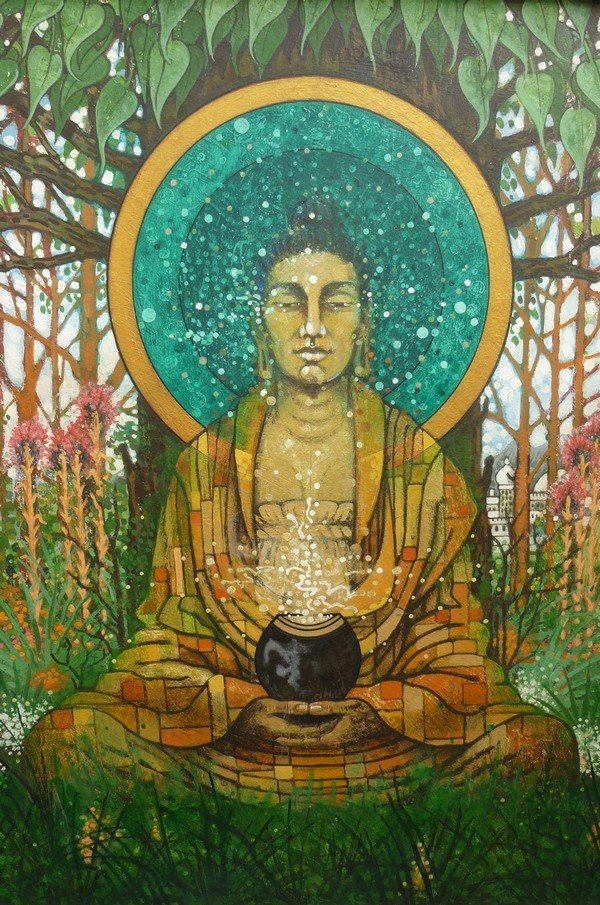Introduction to Buddhism
The nature of Reality & central insights of Buddhist wisdom

If you are interested in knowing more about Buddhism, there are many ways to start exploring. Some of the basic questions are ones like: What is Enlightenment? Who was the Buddha? What did he teach? And perhaps the most important question of all is how can you test what the Buddha taught to see if it is true and helpful for you?
We help you find answers to these question during this course, but there is more than one way in. The Buddha himself taught in terms of a three-fold practice: ethics, meditation and wisdom. All the different Buddhist traditions recognize this basic division and exploring any one of these three leads you inevitably into reflections and considerations of the other two. During this first course of 2016, we will be walking through the doorway of wisdom into the Buddhist tradition.
We will start this course with an introduction to some basic Buddhist principles and definitions. The sort of information which helps you understand what makes a Buddhist a Buddhist, rather than something else.
From there, we'll move into the question of how did the Buddha understand his experience? What did he believe was happening and why? How did he act wisely to create a more meaningful life for himself? What advice did he give for others? Answers to these questions involve the Buddha's teachings on conditioned co-production, an insight he had into the rising and falling away of experience in dependence on conditions. In particular, he urged us to pay attention to the emotional, cognitive and volitional conditions that we live under. These conditions of our heart and mind, our opinions and preferences which shape the choices we make and even shape what we understand our choices to be ... it is this complex interaction of rising and falling away that the Buddha chose to teach about.
When we fully understand and appreciate how our opinions, preferences, and emotions contribute to a meaningful experience, we find ourselves in a better position to make informed choices that lead away from what is unhelpful and towards what is helpful in our lives. All the practices of Buddhism point us to this deeper insight into the human situation, which arises and falls away in accordance with the basic principle of conditioned co-production. And we will spend the rest of the course exploring and discussing the different approaches to wisdom that different people have successfully used in the Buddhist tradition: reflection, contemplation, story, symbol, metaphor and paradox ... for example.
Study topics will include: the three lakshanas, the three vimokshas, reflection and the three levels of wisdom, the prajnaparamita literature (Heart Sutra and Diamond Sutra), some zen koans and the use of paradox, and symbols of awakening (sadhana).
Although we have a series of topics around the theme of Buddhist wisdom, there will also be plenty of time for personal questions. The objective of the course is to help introduce you to Buddhism, and attending to any questions you might have along the way is important.
When
Cost
$180 - full
$120 - low income
Caring for each other's health
Before attending, please read our current Covid Guidelines. This is part of how we practice together.
Led by

Ratnavyuha
I've been actively involved with the Triratna Buddhist community since 1992 when I was still at University. As with many other people, my personal…
